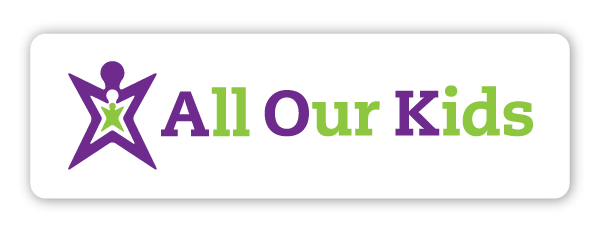What Could Be Going On With My Child?
Parents have to be good listeners, good observers, and good detectives to be able to understand our kids’ behaviors, particularly when those kids have emotional and behavioral challenges. The normal growing pains that affect all children can be magnified in kids with special needs, and it can be so difficult to know what’s going on and what to do about it. Screaming, tantrums, physical or verbal aggression, crying, defiance… When you don’t know the root cause of these behaviors, the stress and worry about what’s going on with your child can be overwhelming and even scary. Add to that all the unknowns and histories of trauma that children who have experienced foster care bring with them…
Understanding what’s going on is both crucial and enormously challenging.
Although I have counseled parents whose children experienced emotional challenges throughout my professional career, I never understood the magnitude of the worry and stress until my adopted 7-year-old experienced what I can only explain as a mental health crisis. When the proverbial shit hit the fan, I felt like I was punched in the stomach with incapacitating fear. I remember looking at this child, the sweet and kind little boy I love so much, and not even recognizing him. After a few days of particular difficulty listening and following rules, he became so out of control, maniacally silly, defiant, and aggressive, that things spiraled into a 911 call. The weeks that followed were among the scariest of my parenting life, and I was terrified I was in over my head.
Part of the problem is that the kinds of emotional and behavioral episodes my child was experiencing can be due to all kinds of underlying issues, some more likely than others, and in many cases it’s impossible to know what the cause might be. There is no blood test for emotional disorders, and clinicians can’t always be sure what’s going on. But if your child is experiencing significant emotional outbursts, there are a number of possibilities to consider*:
- Anxiety. Anxiety can be debilitating in adults, and it can affect children just as strongly. Anxious kids can become worried and concerned, can isolate themselves, or can cry for seemingly no reason. But anxiety can also manifest as physical or verbal aggression and violence in children, who are so overwhelmed with their emotions they can’t regulate their behavior.
- ADHD. Attention-Deficit Hyperactivity Disorder is a controversial, albeit common, diagnosis, particularly for young boys whose tendency toward hyperactivity and lack of focus can be mistaken for diagnosable symptoms rather than normal childhood behavior. But a little-understood component of ADHD is emotional disregulation, which can lead to episodes of aggression and emotional outbursts.
- Mood disorders. Children can be affected by things like depression just as adults can. If your concerns also include a change in your child’s eating or sleeping patterns, strange or worrying topics of conversation (such as talk of suicide, or possible hallucinations), it makes sense to consult with your family’s pediatrician or counselor about a possible mood disorder. Just know that serious mental illnesses such as bipolar disorder or schizophrenia, while not unheard of, are incredibly rare in children.
- Trauma reactions. There has been significantly more understanding of trauma reactions in children in the last few years than ever before. We are continuing to learn so much about how the brain is affected by all kinds of neglect and abuse that foster children might experience (even in utero), and the kinds of behavioral, emotional, and neurological consequences that are associated. Even children who do not typically struggle with behavioral or emotional challenges can be affected by past trauma at times and in ways that are difficult to predict. All kiddos are different, and experiences of trauma can have different lifelong consequences.
- Attachment. Kids who have had numerous caregivers in their young life, or who experienced any type of neglect or abuse, are at significantly higher risk for attachment issues. Understandably, these kids’ brains protect them from the pain associated with attaching to an adult caregiver because past experience (whether conscious or not) has taught them these caregivers can be dangerous. Even in the presence of attentive and loving caregivers, these children are not often able to attach securely and connect in ways other children can. This can be manifested in behavioral or emotional acting out.
- Sensory Integration Issues. Sensory issues are more than just trouble with loud noises or bright lights (though there’s that too). Our senses are numerous, and have a significant impact on emotions and behavior. Sensory issues can affect a child’s ability to regulate body temperature, executive functioning, and emotional regulation, to name a few. A child who has intense emotions and trouble calming down, for example, might be having issues with sensory regulation.
- This is normal. Growing up is hard. Kids can’t always understand everything they’re feeling and going through, and they can lack the ability to articulate their emotions. So sometimes these emotions spill out into their behavior. Normal life transitions, such as starting a new school or the arrival of a new sibling, can feel grossly overwhelming to kids who thrive on consistency and knowing what to expect. It’s very likely whatever is happening with your kiddo is nothing to worry too much about, and can be helped with patience, kindness, consistency, and love.
Know that no matter what you’re going through, others of us have been there before. If you’re a foster or adoptive parent in Western Massachusetts, and are struggling with your child’s mental health concerns or behavioral challenges, reach out. We can help connect you to support and resources. They’re All Our Kids, and we are here for you.
* The information and links provided here and intended for informational purposes only, and is not a substitute for appropriate consultation and/or treatment by a qualified mental health or primary care provider.
